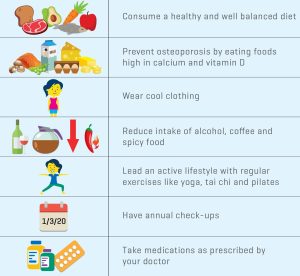Alcohol can affect our mind and body regardless of our health. Worse still, it can impact any woman during menopause.
Menopause is the natural event that happens in every woman’s life usually between 45 and 55, or earlier, and can affect everyone differently.
Symptoms – which can start during perimenopause before your periods have stopped – include changes in mood, memory, sleep, weight, hot flushes and more.
And as alcohol can take its toll in similar areas, there’s more to consider when drinking if you’re at this stage of your life. Here, the experts explain what to be aware of, from our body to our mind.
How alcohol can affect you during menopause
While, of course, there’s nothing wrong with a drink in moderation, it’s first important to be aware of how alcohol can affect us, regardless of whether we’re going through the menopause.
“Generally, alcohol initially tends to boost how we are feeling when we start drinking, but then as it is a depressant, it affects levels of serotonin and dopamine in our brain, that are linked to our mood, and feeling happy, causing these chemicals to be lower the next day and making us feel down, depressed and even anxious,” explains Dr. Hana Patel, GP specialist in women’s health and GP expert witness.
So, when coupled with the menopause, while it can be fine for some, for others there might be more negative implications.
“Alcohol affects women differently during the perimenopause and menopausal period,” says Dr. Patel. “It can make some menopausal symptoms worse – for example, as alcohol normally causes our blood vessels to dilate, during the menopause, this may lead to worsening symptoms of hot flushes. It can also cause sleep difficulties and mood changes such as anxiety in some women.”
Dr Martin Kinsella, leading hormone doctor and co-founder of BioID Health, agrees. “There have been a number of studies that have suggested there are habits that can affect the frequency and severity of menopause symptoms. Drinking alcohol appears to be one of them. In fact, one study found that women who drank alcohol daily were much more likely to report hot flushes and night sweats.”
Dr. Patel also points out that alcohol can affect women more than men, with some studies showing that the type of alcohol we drink can impact us differently. She says red wine is thought to cause more of the above two symptoms in particular.

One of the ways the NHS suggests trying to ease hot flushes and night sweats is by avoiding potential triggers, which include alcohol.
Menopause, alcohol and your mood
In terms of how alcohol might affect your mental health during menopause, Dr. Patel points out, “Generally it affects chemicals in our brain as mentioned above. Some women find that they may experience mood symptoms during the menopause, such as anxiety, depression, low mood for example, and drinking alcohol, a depressant can make these symptoms worse.”
It’s also key to be aware of why we are drinking when going through the menopause.
“It’s important to note the link between using alcohol as a coping mechanism for some of the psychological symptoms associated with menopause,” Dr Kinsella points out. “This can of course very quickly turn into a problem and a danger to health. I would like to remind people that there are now effective treatments for menopause and hormonal imbalances.
“BioID Health relies on a very simple at-home blood test, for instance. Please do not suffer in silence and do speak with a specialist who will be able to help.”
For more information, visit your doctor.


